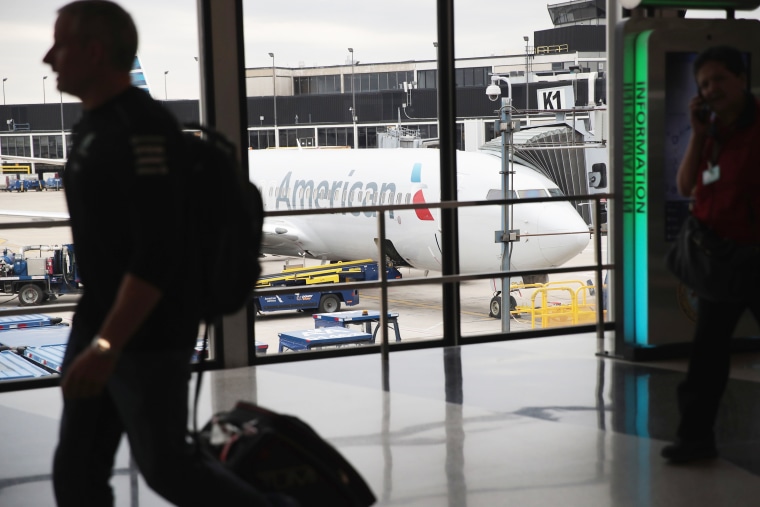In Georgia, voting-rights advocates hoped to partner with business leaders to derail a Republican voter-suppression bill. By and large, that did not happen: major corporations based in Georgia largely remained on the sidelines as GOP policymakers created new barriers between voters and their democracy.
Faced with ongoing criticisms over their passivity, Coca-Cola and Delta Airlines executives said this week that Georgia's measure is "unacceptable." It's a sentiment that would've been welcome before the law was approved.
As Texas Republicans move forward with a Georgia-style law of their own, several private-sector leaders are learning from the example and getting ahead of the problem. The Associated Press reported this morning:
The ranks of big corporations now criticizing GOP efforts to restrict voting access spread Thursday to Texas as measures that would reduce options to cast ballots and limit polling hours advanced in the state Capitol. American Airlines, which is based in Fort Worth, came out against restrictive voting measures that have a favorable path to reaching Republican Gov. Greg Abbott's desk in the coming weeks.
"To make American's stance clear: We are strongly opposed to this bill and others like it," the airline said in a statement.
It wasn't alone. To varying degrees, AT&T and Southwest Air also offered criticism of Texas' anti-voting proposal, while Michael Dell, whose tech company is headquartered in Austin, expressed his opposition to the bill via Twitter. Microsoft isn't based in Texas, but it was also quite explicit in its opposition to the legislation pending in the state House.
Meanwhile, a variety of other big companies are adding their voices to criticizing Georgia's new law.
Amazon.com issued a statement expressing its opposition to voter-suppression laws in general, and encouraged policymakers to follow the lead of Virginia Democrats, who've shown meaningful leadership in approving measures to expand the franchise.
So where does this leave us? With three questions.
1. What will private-sector leaders do now? Denouncing bad bills and bad laws is a worthwhile step, but it's only a step. If these same corporations and executives are prepared to lobby in support of the "For the People Act" in Congress, that may very well help make a more substantive difference.
2. Will GOP lawmakers be swayed by the criticisms? We know many Republican officials aren't especially interested in criticisms from voting-rights advocates and media voices like mine. We don't know if they'll be any more interested in press releases from major employers in their home states.
3. Will Republicans retaliate? In Georgia, after Delta Airlines criticized the state's new voting restrictions, the GOP-led state House voted to scrap a lucrative state tax break that airline currently enjoys. State House Speaker David Ralston (R) was quoted saying, "You don't feed a dog that bites your hand."
The effort ultimately didn't pass, though several GOP legislators in Georgia openly voiced their support for retaliating against their private-sector allies for daring to speak up in support of voting rights.
Last night, Dallas County Republican Party Chairman Rodney Anderson, a former GOP state legislator, published a tweet that raised the prospect of denying tax incentives to Microsoft, American Airlines, and Dell in response to yesterday's statements. (The tweet was later deleted.)
The pattern is jarring. Traditionally, Republicans expected Corporate America to agree with the GOP's policy agenda. Recently, leading Republicans also started demanding that Corporate America agree with the GOP on matters of culture and race.
Now, evidently, some in the Republican Party expect Corporate America to toe the GOP line on voter-suppression initiatives, too.

